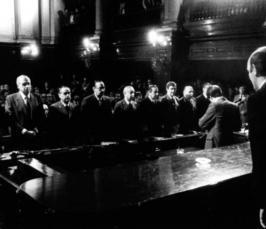The Concept of „Estado de Derecho“ in the History of Argentinean Constitutionalism (1930-2015)
Jour Fixe
- Date: Dec 11, 2017
- Time: 12:00 PM - 01:00 PM (Local Time Germany)
- Speaker: Agustín Casagrande, Cluster of Excellence “The Formation of Normative Orders”
- Opponent: Gerd Bender, MPIeR
- Location: MPIeR
- Room: Z 01
